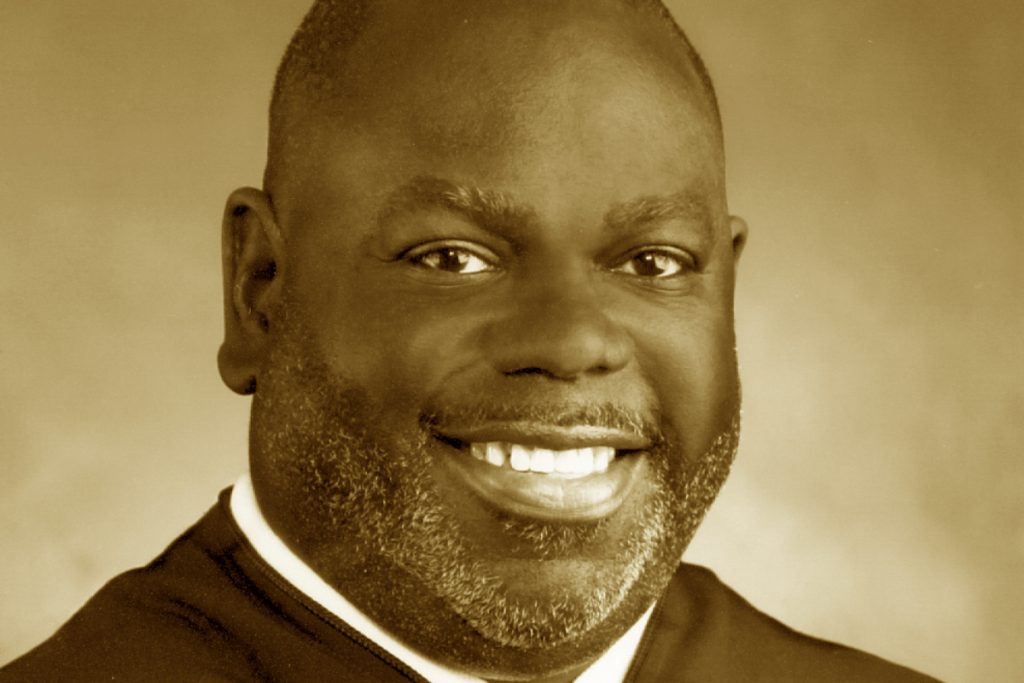Parties to a long-debated lawsuit against Mississippi’s mental health-care system made their final appeals to District Judge Carlton Reeves yesterday, setting the stage for his judgment on how Mississippi will mend its community mental-health offerings in accordance with the U.S. Constitution.
At the heart of the deliberations is the Olmstead decision, a landmark 1999 decision that established the right of individuals with mental illnesses to live within their own communities as much as is feasible. Under Olmstead, the state must justify the institutionalization of such individuals, and this includes the creation and maintenance of alternative systems which divert people away from containment.
The case itself dates back to 2011, when the federal government first challenged the state’s excessive institutionalization of residents in mental-health crises. In 2016, the DoJ sued the State of Mississippi, with Reeves ruling against the state; now Reeves’ second decision will define how the state must rebuild its mental health system.
Yesterday, U.S. Department of Justice lawyers reasserted their case that strict federal oversight was the only guaranteed way to reform the State of Mississippi’s mental-health system.
‘Unnecessary Segregation’
Deena Fox, senior trial attorney for the DoJ’s Civil Rights Division, called for extensive expansion of Mississippi’s crisis care options and intensive scrutiny to measure it.
“This case is about people who need and have not been able to access community mental health services to be discharged from or avoid unnecessary segregation in Mississippi state hospitals,” Fox said. “A judicially enforceable remedial plan, subject to monitoring by a court-appointed expert, is the only reliable way to (Americans With Disabilities Act, or ADA) compliance. That was true two years ago … and it’s true today.”
The State of Mississippi rejects the DoJ’s framing and its proposed remediations, especially the imposition of continued external oversight. Jim Shelson, of the New Orleans-based law firm Phelps Dunbar, presented the State’s own plan, which builds on its current momentum in improving its mental health-care system and uses alternative measures for crisis response.
“How much is enough?” Shelson asked, arguing that Mississippi had made strides to bring its mental-health offerings in line with the ADA. “If you do enough to be in compliance with the ADA, you do not need to do more. The DoJ’s plan includes things that are more than necessary under the ADA,” Shelson argued.
Crisis Care At Stake
Judge Reeves is tasked with finding the devil in the details of complex programs intended for this purpose. To the DoJ, “programs of assertive community treatment,” or PACTs, are the necessary solution. A PACT is a mobile team of mental-health professionals intended to provide intervention in moments of severe mental-health crisis without removing the individual in distress from their own communities.

The DoJ expects a PACT for every region in Mississippi’s mental-health system. The State argues that alternative programs are suitable for some smaller, more rural regions. Those programs’ mobile teams would not include a psychiatrist or other individual capable of prescribing psychiatric medication.
Fox argued that services that appear to meet requirements on paper often fail in practice. “Arriving at a crisis too late, or referring people in a crisis to law enforcement, as we heard about in trial, results in unnecessary hospitalizations,” she told the court. In some cases, she added, “it is as if the mobile crisis team doesn’t exist at all.”
Shelson countered that it is premature to judge the suitability of Mississippi’s alternative programs before they were fully deployed. “Showing that new programs work before we put them out in the field … that’s a catch-22. It’s impossible to know. You need to deploy the program in the field—DoJ proposing a sort of ‘pre-authorization’ is plainly contrary to law.”
‘Better Than The Average State’
Dr. Michael Hogan, the special master entrusted with expert analysis of the competing plans, provided the day’s key testimony. Hogan, a career-veteran leader of mental-health systems in Connecticut, Ohio and New York, advised a middle-ground approval of much of the state’s alternative measures with forceful insistence on the expert oversight the DoJ demands.
Ultimately, Hogan backed the State in its assertion that it has made real progress since the original judgment found it lacking. “It appears, from what I can see, that there have been significant improvements over time in Mississippi. The community mental-health center approach is a good fundamental approach,” Hogan said.
Hogan’s approval is the State’s strongest case for Judge Reeves to rule in favor of its alternative methods of providing crisis care to low-population areas. “I’ve spent a good deal of time working around the country in crisis care. Mississippi’s approach to crisis care is good. It’s better than the average state’s,” Hogan said. added, “It’s not grossly out of equilibrium anymore; it’s approaching balance.”
But Hogan leavened his support of the overall system with the need for strict oversight. “The core issues… have to do with the fact that the performance of those services on the ground are unclear. There’s gaps between capacity and actual capacity,” he said, echoing DoJ concerns that police are often asked to step in during a crisis, bypassing the diversion programs entirely.
Neither the State of Mississippi nor the DoJ is entirely satisfied with Hogan’s middle way. “The special master recommends that the court accept the newly developed services …, and he indicates that they should be subject to clear verification requirements.” The mechanics of that verification, Fox said, “are flawed.”
“The DoJ is proposing a vague and unmanageable readjustment process,” Shelson countered.
“The State’s proposal is to keep the status quo, which is not sufficient,” Fox argued.
With the exhaustive presentation of the case for the federal and state plan concluded, the future of Mississippi’s mental-health system is now in the hands of Judge Reeves. His ruling will shape the dimensions of the State’s regional crisis offerings for years to come—provided, of course, the State of Mississippi does not successfully appeal his decision to an even higher court.









